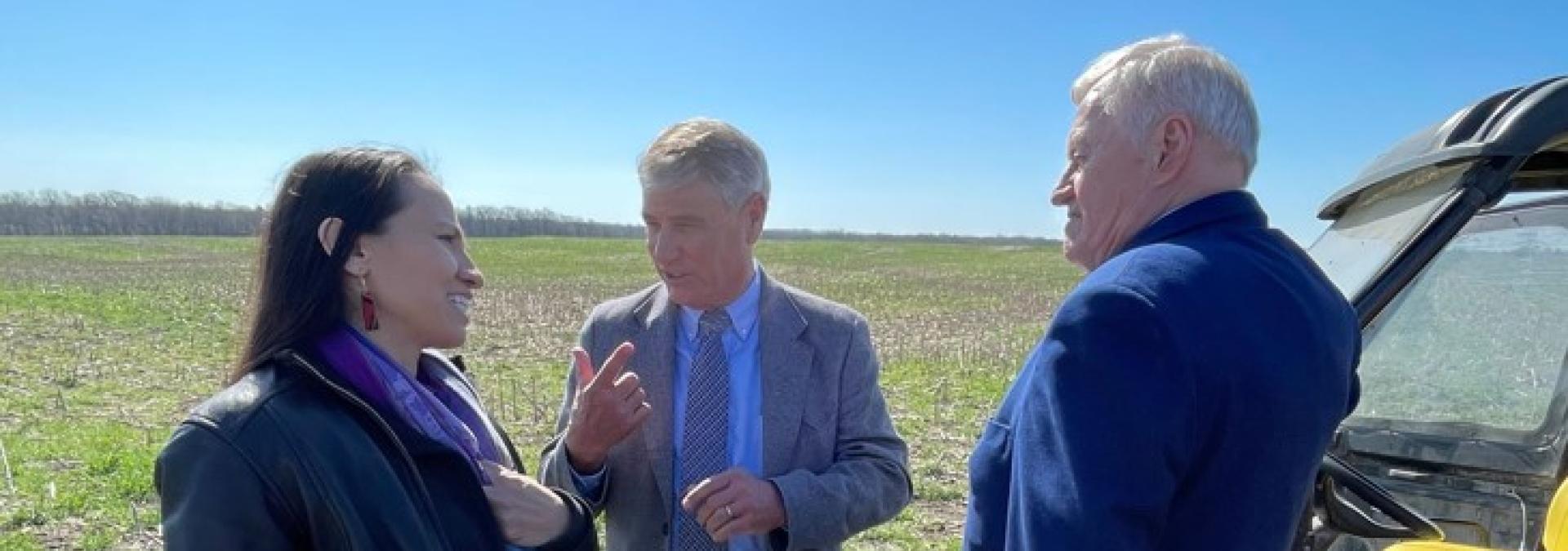Davids Urges Stronger Support for Kansas Farmers Amid Trade Uncertainty

Today, during a U.S. House Agriculture Committee hearing on the financial outlook for farmers, Representative Sharice Davids (D-KS-03) highlighted the challenges Kansas producers could face due to trade disruptions and inconsistent policy changes. She emphasized the need for stable, long-term, and bipartisan trade policies to lower costs and support Kansas’ agricultural economy, which ranks as the eighth-largest agricultural exporter in the country.
“Farmers depend on stable, long-term trading relationships. Abrupt shifts in policy — like the President’s threatened tariffs on Canada and Mexico — would raise prices for farmers and make it harder for them to plan for the future,” said Davids. “We must work together to provide certainty for our producers, strengthen our global competitiveness and trade relationships, and ensure Kansas farmers can continue doing what they do best — feeding our country and the world”
WATCH: Davids speaks on the need for responsible bipartisan trade policy to support Kansas producers
During the hearing, Davids highlighted the challenges Kansas farmers face due to trade uncertainty and funding disruptions. The American Farm Bureau recently warned that proposed tariffs on major agricultural markets could hurt producers. She also addressed the confusion caused by the now-blocked federal funding freeze, which left many farmers uncertain about millions of dollars in promised USDA support. Additionally, disruptions to key food aid programs have restricted market opportunities for American farmers, who provide about 41 percent of the food distributed through these initiatives.
To support Kansas’ agriculture economy, Davids has brought U.S. Department of Agriculture Undersecretaries to Kansas’ Third District to discuss the region's meatpacking and dairy industries. She also led a Farm Bill listening tour across the district and convened over 20 stakeholders, including former Senator Pat Roberts, to advocate for a Farm Bill benefiting all Kansans. In 2022, she was named a Friend of the Farm Bureau by the Kansas Farm Bureau.
A full transcript of Davids’ remarks can be found below:
Thank you, Mr. Chairman.
Agriculture is the backbone of Kansas’ economy, with our state ranking as the eighth-largest agricultural exporter in the country, shipping more than $7 billion in beef, wheat, soybeans, and other grains to markets around the world. But today, our producers are facing significant economic uncertainty due to trade disruptions and inconsistent policy changes.
Farmers depend on stable, long-term trading relationships. Abrupt shifts in policy — like the President’s threatened tariffs on Canada and Mexico — would raise prices for farmers and it make harder for them to plan for the future.
We’ve seen the consequences of trade instability before. When certain tariffs were imposed during the President’s first term, American farmers lost roughly $27 billion in exports between 2018 and 2019, according to the Washington Post. Many had to rely on USDA programs to stay afloat, putting the financial burden on all hardworking Kansans. To keep our agricultural economy strong, we need trade policies that open doors for our farmers rather than create new obstacles.
At the same time, while the courts blocked the recent federal funding freeze, the uncertainty it created has had real consequences. Farmers who signed contracts with USDA programs — investing their own money in fencing, new crops, and renewable energy systems — were left in limbo, unsure if the funding they were promised would come through.
The same is true for recent disruptions to key food aid programs, for which Kansas producers supply a significant share of the food distributed worldwide.
This isn’t about politics. It’s about stability and opportunity for that multi-generational farm in Garnett, Kansas, and across the country, where families simply want to make an honest living and provide for their loved ones. That’s why leaders on both sides of the aisle have spoken out on the need for policies that support our agricultural sector and lower prices at the grocery store.
We must work together to provide certainty for our producers, strengthen our global competitiveness AND trade relationships, and ensure Kansas farmers can continue doing what they do best — feeding our country and the world.